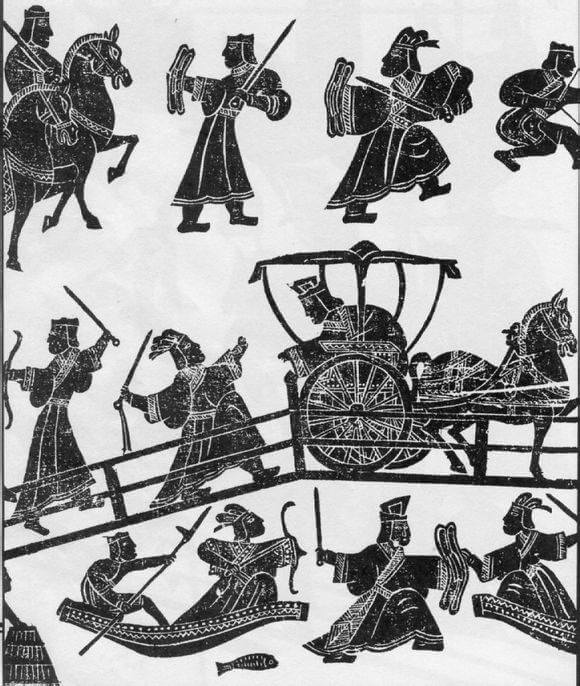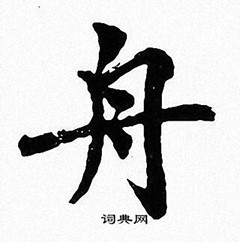One Hundred Unorthodox Strategies – 7. Amphibious Strategies (zhou, 舟)
Whenever you engage an enemy in combat along or on rivers and lakes, it is necessary to have boats and oars. Moreover, you should assume a position upwind or upstream. One who is upwind can, by exploiting the wind, employ an incendiary attack to set the enemy afire. One who is upstream can utilize the current’s strategic power to ram the enemy with high-walled war vessels. In such cases you will always be victorious in battle. The Art of War states: “One who wants to engage in combat does not go contrary to the current’s flow.”
(Translation by Ralph D. Sawyer)
Notes:
· The title “Amphibious Operations” (zhou, 舟), means “to ship,“ or “to transport by boat,“ and can also be used to signify a boat itself, usually an inland water-going vessel.
· The quote from Sun Tzu’s The Art of War (fa yue, 法曰) is from chapter 9, paragraphs 5-6, in the translation of Lionel Giles (1910): “If you are anxious to fight, … do not move upstream to meet the enemy.”
Original Text:
凡與敵戰於江湖之間,必有舟楫,須居上風、上流。上風者,順風,用火以焚之;上流者,隨勢,使戰艦以沖之,則戰無不勝。法曰:「欲戰者,無迎水流。」
Historical Example:
In the late 6th century BCE, Prince Guang of Wu, who would later become King Helu, attacked the state of Chu. The prime minister of Chu ordered a divination to be performed about the battle’s outcome, which turned out to be inauspicious. Chu’s Minister of War Zi Yu 子魚, however, said: “We have gained a superior position upstream, so how can it be inauspicious?“ Chu subsequently engaged Wu in battle, employing massive high-walled vessels to suddenly penetrate Wu’s flotilla. Wu’s strategic power was therefore weakened, and their army found it difficult to fend off Chu’s land forces. Eventually Wu’s army was badly defeated.

